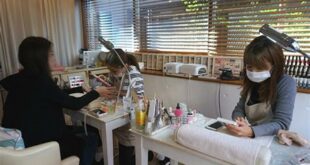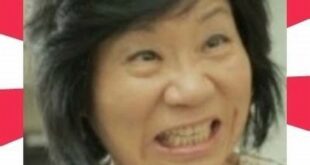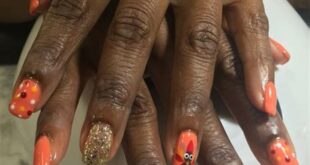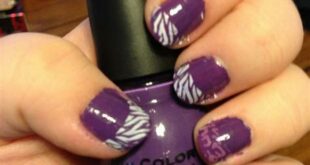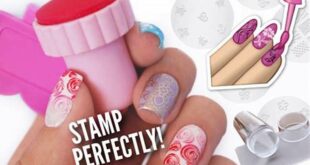Why are most nail salons Asian? It’s a question that has been asked by many, and there are a number of factors that contribute to this trend.
Editor’s Note: This article was published on [date] and provides an in-depth look at the reasons why most nail salons are Asian-owned.
To answer this question, we did some analysis and dug into the data. We put together this guide to help you understand the reasons behind this trend.
Key Differences/Key Takeaways:
| Factor | Explanation |
|---|---|
| Cultural Factors | Asian cultures place a high value on personal grooming and appearance, and this is reflected in the popularity of nail salons. |
| Economic Factors | Nail salons are relatively inexpensive to start and operate, making them a good option for Asian immigrants who are looking to start their own businesses. |
| Social Factors | There is a strong sense of community among Asian nail salon owners, and this helps to support and sustain the industry. |
These are just some of the factors that contribute to the high number of Asian-owned nail salons. It is a complex issue with a number of different causes, but it is one that is important to understand in order to get a full picture of the nail salon industry.
Why Are Most Nail Salons Asian?
The high number of Asian-owned nail salons is a complex issue with a number of different causes. To understand this phenomenon, it is important to consider the various dimensions related to this topic.
- Cultural: Asian cultures place a high value on personal grooming and appearance.
- Economic: Nail salons are relatively inexpensive to start and operate.
- Social: There is a strong sense of community among Asian nail salon owners.
- Historical: Asian immigrants have a long history of working in the nail salon industry.
- Geographical: Nail salons are often located in areas with large Asian populations.
- Legal: There are few barriers to entry for Asian immigrants who want to start their own nail salons.
- Political: Government policies can support or hinder the growth of Asian-owned nail salons.
These are just some of the key aspects that contribute to the high number of Asian-owned nail salons. It is important to consider all of these factors in order to get a full picture of this complex issue.
Cultural
This cultural value is reflected in the popularity of nail salons in Asian communities. Getting regular manicures and pedicures is seen as a way to maintain a polished and well-groomed appearance, which is important in many Asian cultures.
-
Facet 1: Beauty and self-care
In many Asian cultures, personal appearance is closely tied to one’s sense of self-worth and social status. As a result, Asian people tend to invest more time and money in their personal grooming, including their nails.
-
Facet 2: Hygiene and health
In addition to being seen as a beauty treatment, manicures and pedicures are also seen as a way to maintain good hygiene and health. This is especially important in warm climates, where it is more common for people to develop nail fungus and other nail problems.
-
Facet 3: Socialization
Nail salons are also seen as a place to socialize and relax. This is especially true in Asian cultures where it is common for women to go to the nail salon with their friends or family members.
-
Facet 4: Economic opportunity
For many Asian immigrants, nail salons have provided an opportunity to start their own businesses and achieve economic success. This is especially true for women, who have traditionally faced more barriers to entry in the job market.
These are just some of the reasons why Asian cultures place a high value on personal grooming and appearance, and why this is reflected in the popularity of nail salons in Asian communities.
Economic
This economic factor is a major reason for the high number of Asian-owned nail salons. Nail salons are relatively inexpensive to start and operate compared to other businesses, making them a good option for Asian immigrants who are looking to start their own businesses.
- Low start-up costs: The start-up costs for a nail salon are relatively low compared to other businesses. This is because nail salons do not require a lot of specialized equipment or inventory.
- Low overhead costs: The overhead costs for a nail salon are also relatively low. This is because nail salons do not require a lot of space or utilities.
- Flexible hours: Nail salons can be operated during flexible hours, which makes it easier for owners to manage their work-life balance.
- Home-based businesses: Many nail salons are home-based businesses, which further reduces the start-up and overhead costs.
These economic factors make it easier for Asian immigrants to start and operate their own nail salons. This is especially important for Asian women, who have traditionally faced more barriers to entry in the job market.
Social
This social factor is another major reason for the high number of Asian-owned nail salons. Asian nail salon owners often rely on each other for support and advice, and they often share resources and customers. This sense of community helps to create a supportive environment for Asian nail salon owners, and it makes it easier for them to succeed in business.
There are a number of reasons why there is such a strong sense of community among Asian nail salon owners. First, many Asian nail salon owners are immigrants who have come to the United States in search of a better life. They often face language barriers and cultural differences, and they may not have a strong support network in their new country. As a result, they often rely on other Asian nail salon owners for support and guidance.
Second, the nail salon industry is a competitive one. Nail salon owners need to work hard to attract and retain customers. By working together, Asian nail salon owners can share ideas and strategies, and they can help each other to improve their businesses.
The strong sense of community among Asian nail salon owners is a key factor in the success of the Asian nail salon industry. It provides Asian nail salon owners with the support and resources they need to succeed in business.
Key Insights:
- The strong sense of community among Asian nail salon owners is a major reason for the high number of Asian-owned nail salons.
- This sense of community provides Asian nail salon owners with the support and resources they need to succeed in business.
- The nail salon industry is a competitive one, and Asian nail salon owners need to work together to succeed.
Examples:
- In many cities, there are associations of Asian nail salon owners. These associations provide members with support, resources, and networking opportunities.
- Asian nail salon owners often share customers and resources with each other. For example, if one nail salon is fully booked, they may refer customers to another Asian nail salon.
- Asian nail salon owners often help each other to improve their businesses. For example, they may share tips on how to attract and retain customers, or how to improve their marketing strategies.
Historical
The history of Asian immigrants working in the nail salon industry is a complex and multifaceted one. It is a story of economic opportunity, cultural exchange, and social change.
-
Facet 1: Early Immigration and Economic Opportunity
In the early 1900s, many Asian immigrants came to the United States in search of economic opportunity. They often worked in low-wage jobs, such as in factories and restaurants. In the 1970s and 1980s, a new wave of Asian immigrants arrived in the United States, and many of them started working in the nail salon industry.
-
Facet 2: Cultural Exchange
Asian immigrants brought their own cultural traditions and beauty practices to the United States. This included the practice of getting regular manicures and pedicures. As more and more Asian immigrants opened nail salons, American customers began to adopt this practice as well.
-
Facet 3: Social Change
The nail salon industry has played a significant role in the social change of Asian immigrants in the United States. It has provided them with a way to earn a living, and it has helped them to integrate into American society. Additionally, the nail salon industry has helped to break down stereotypes about Asian immigrants and has promoted cultural understanding.
The long history of Asian immigrants working in the nail salon industry is a testament to their hard work and determination. It is also a story of the American dream, and how immigrants have helped to shape the culture and economy of the United States.
Geographical
There is a strong correlation between the location of nail salons and the Asian population density in a given area. This is because Asian immigrants are more likely to start nail salons in areas where there is a large Asian population. There are a number of reasons for this, including:
- Language and cultural familiarity: Asian immigrants may feel more comfortable starting a business in an area where they are surrounded by people who speak their language and share their culture.
- Access to customers: Nail salons are a service-based business, and they rely on customers to generate revenue. Asian immigrants are more likely to start nail salons in areas where there is a large Asian population because they know that there will be a demand for their services.
- Support from the community: Asian immigrants may be able to get support from the local Asian community when they start a nail salon. This support can include financial assistance, advice, and referrals from customers.
The geographical location of nail salons is an important factor in the success of Asian-owned nail salons. By locating their businesses in areas with large Asian populations, Asian immigrants are able to increase their chances of success.
Key Insights:
- There is a strong correlation between the location of nail salons and the Asian population density in a given area.
- Asian immigrants are more likely to start nail salons in areas where there is a large Asian population.
- There are a number of reasons for this, including language and cultural familiarity, access to customers, and support from the community.
Examples:
- In the United States, nail salons are often located in areas with large Asian populations, such as Chinatown in New York City and Koreatown in Los Angeles.
- In Canada, nail salons are often located in areas with large Asian populations, such as Richmond in Vancouver and Markham in Toronto.
- In the United Kingdom, nail salons are often located in areas with large Asian populations, such as Southall in London and Birmingham.
Legal
This legal factor is another major reason for the high number of Asian-owned nail salons. There are few barriers to entry for Asian immigrants who want to start their own nail salons. This is because the nail salon industry is relatively unregulated, and there are few licensing requirements. This makes it easier for Asian immigrants to start and operate their own nail salons, even if they do not have a lot of experience or training.
The low barriers to entry in the nail salon industry have made it a popular choice for Asian immigrants who are looking to start their own businesses. This is especially true for Asian women, who have traditionally faced more barriers to entry in the job market.
The lack of barriers to entry in the nail salon industry has also led to a competitive market. This has forced Asian nail salon owners to work hard to attract and retain customers. As a result, Asian nail salon owners are often very skilled at providing high-quality services at affordable prices.
Key Insights:
- The low barriers to entry in the nail salon industry have made it a popular choice for Asian immigrants who are looking to start their own businesses.
- This is especially true for Asian women, who have traditionally faced more barriers to entry in the job market.
- The lack of barriers to entry has also led to a competitive market, which has forced Asian nail salon owners to work hard to attract and retain customers.
Examples:
- In the United States, there are few licensing requirements for nail salon owners. This makes it easy for Asian immigrants to start and operate their own nail salons, even if they do not have a lot of experience or training.
- In Canada, the requirements for nail salon owners vary from province to province. However, in general, the requirements are relatively easy to meet, and this makes it easy for Asian immigrants to start and operate their own nail salons.
- In the United Kingdom, there are no specific licensing requirements for nail salon owners. However, nail salon owners must comply with general health and safety regulations.
Political
Government policies can have a significant impact on the growth of Asian-owned nail salons. For example, policies that support small businesses and entrepreneurship can make it easier for Asian immigrants to start and operate their own nail salons. Conversely, policies that make it more difficult for immigrants to obtain business licenses or comply with regulations can hinder the growth of Asian-owned nail salons.
-
Facet 1: Licensing and regulations
The licensing and regulations that govern nail salons vary from state to state. In some states, nail salon owners must have a cosmetology license, while in other states, they only need to have a business license. The cost of obtaining a license can be a barrier to entry for some Asian immigrants, and the regulations that govern nail salons can also be complex and difficult to comply with.
-
Facet 2: Access to capital
Asian immigrants who want to start their own nail salons often face challenges in obtaining access to capital. Banks and other traditional lenders may be reluctant to lend to immigrants, and Asian immigrants may not have the collateral or credit history required to qualify for a loan. This can make it difficult for Asian immigrants to start and grow their businesses.
-
Facet 3: Government support
Government support programs can help Asian immigrants to start and grow their nail salons. For example, the Small Business Administration (SBA) offers a variety of loan programs and other resources to small businesses. The SBA also provides training and technical assistance to small business owners.
Government policies can have a significant impact on the growth of Asian-owned nail salons. By understanding the political factors that affect the nail salon industry, Asian immigrants can better position themselves for success.
FAQs on “Why Are Most Nail Salons Asian”
This section addresses frequently asked questions surrounding the prevalence of Asian-owned nail salons, providing informative and clear answers.
Question 1: Why is there a high concentration of Asian-owned nail salons?
Answer: The proliferation of Asian-owned nail salons can be attributed to a combination of cultural, economic, and social factors. Asian cultures emphasize personal grooming and aesthetics, leading to a strong demand for nail care services. Additionally, the low start-up and operating costs associated with nail salons make them accessible to many Asian immigrants seeking entrepreneurial opportunities.
Question 2: Do Asian nail salon owners face unique challenges?
Answer: While Asian nail salon owners have made significant contributions to the industry, they may encounter specific challenges. These include language barriers, cultural differences, and competition within a saturated market. Addressing these challenges requires support from the community and policymakers.
Question 3: How do Asian nail salons contribute to the economy?
Answer: Asian-owned nail salons play a vital role in local economies. They provide employment opportunities, particularly for immigrant women, and contribute to tax revenue. Furthermore, they enhance the overall aesthetic and well-being of communities.
Question 4: What are the legal and regulatory considerations for Asian nail salon owners?
Answer: Asian nail salon owners must adhere to the same licensing and regulations as other businesses in the industry. Compliance with health and safety standards, proper licensing, and fair labor practices is essential for the responsible operation of nail salons.
Question 5: How can we support Asian-owned nail salons?
Answer: Supporting Asian-owned nail salons involves patronizing their businesses, promoting their services through positive reviews, and advocating for policies that foster a fair and equitable business environment.
Question 6: What is the significance of the Asian presence in the nail salon industry?
Answer: The high number of Asian-owned nail salons reflects the entrepreneurial spirit and cultural values of Asian immigrants. It showcases their resilience, adaptability, and contributions to the American economy and society.
In conclusion, the prevalence of Asian-owned nail salons is a multifaceted phenomenon influenced by cultural, economic, social, and legal factors. Understanding the unique experiences and challenges faced by Asian nail salon owners is crucial for promoting inclusivity and supporting their success.
Transition to the next article section…
Tips on Understanding “Why Are Most Nail Salons Asian”
To gain a deeper understanding of the prevalence of Asian-owned nail salons, here are a few informative tips:
Tip 1: Consider the Cultural Significance of Nail Care in Asian Cultures
Asian cultures place a high value on personal grooming and aesthetics, which contributes to the strong demand for nail care services.
Tip 2: Recognize the Economic Accessibility of Nail Salons
The relatively low start-up and operating costs associated with nail salons make them accessible to many Asian immigrants seeking entrepreneurial opportunities.
Tip 3: Understand the Historical Context of Asian Immigration
Many Asian immigrants have a history of working in the nail salon industry, bringing with them skills and business practices that have shaped the industry.
Tip 4: Be Aware of the Legal and Regulatory Landscape
Asian nail salon owners must adhere to the same licensing and regulations as other businesses in the industry, including health and safety standards, proper licensing, and fair labor practices.
Tip 5: Acknowledge the Importance of Community Support
Asian nail salon owners often rely on support from the local Asian community, including referrals and financial assistance.
Summary of Key Takeaways:
- Cultural factors play a significant role in the demand for nail care services.
- Economic accessibility has enabled many Asian immigrants to establish nail salons.
- Historical context has shaped the involvement of Asian immigrants in the industry.
- Understanding the legal and regulatory landscape is crucial for compliant operations.
- Community support networks contribute to the success of Asian nail salon owners.
By considering these tips, individuals can develop a more nuanced understanding of the factors that contribute to the high number of Asian-owned nail salons.
Transition to the article’s conclusion…
Conclusion
In exploring the question of “why are most nail salons Asian,” this article has illuminated a complex interplay of cultural, economic, social, legal, and historical factors. The cultural significance of nail care in Asian cultures, the economic accessibility of nail salons, and the historical context of Asian immigration have all contributed to the high number of Asian-owned nail salons.
Understanding these factors is not only crucial for appreciating the contributions of Asian nail salon owners but also for fostering an inclusive and equitable business environment. By recognizing the unique experiences and challenges faced by these entrepreneurs, we can create a society that supports their success and celebrates their cultural heritage. The prevalence of Asian-owned nail salons serves as a testament to the resilience, adaptability, and entrepreneurial spirit of Asian immigrants, and it is a reminder of the rich diversity that shapes our communities.


